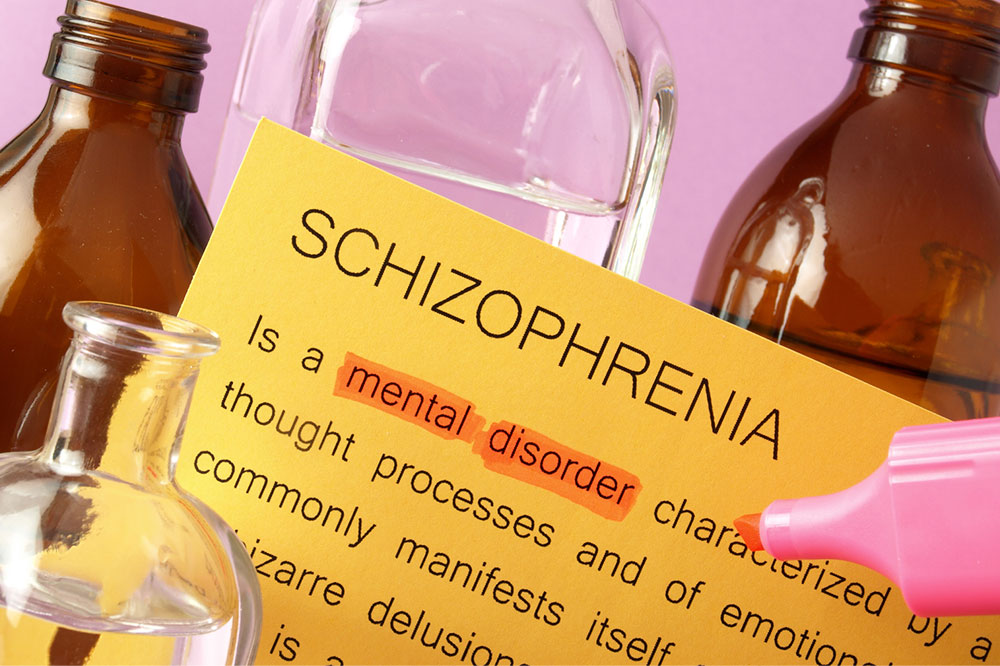Schizophrenia – Causes, symptoms, and treatments

A severe mental disorder, schizophrenia impacts how an individual thinks, reacts to emotions, and perceives reality. It results in a variety of symptoms including delusions, hallucinations, and paranoia that can cause the patient to isolate themselves from the rest of the world. At present, roughly 1% of the total population suffer from this mental disorder.
Schizophrenia cannot be cured, however, it can be managed with the help of medications and therapy. This disorder can affect anyone. It typically develops in men during their late teens or early twenties. On the other hand, in women, the symptoms of schizophrenia begin to surface during their twenties or early thirties.
The following are some commonly observed symptoms of this condition:
- Delusions: People suffering from schizophrenia often have delusions that can impair their day-to-day life. For example, they might believe they are being subjected to unjust prejudice, or they are exceptionally famous, or a big disaster is about to occur.
- Hallucinations: Typically, patients experiencing schizophrenia mention seeing things or hearing sounds and/or voices that don’t exist. Hallucinations can also involve smelling strange odors or experiencing odd sensations in the body.
- Disorganized speech: Schizophrenia impairs the brain’s ability to think clearly which leads to disorganized speech. Simply put, the patient will talk about things that are completed or partially unrelated to the current conversation. In rare cases, they might put together random words that don’t make sense.
- Abnormal motor behavior: This symptom can manifest in a number of ways. For example, the individual might act silly, be unnaturally childish, or get absurdly angry. Since the behavior isn’t directed towards a goal, it can become tough to manage routine tasks as one might disobey instructions, not respond, keep repeating movements, and hold an awkward pose for a long time.
- Negative symptoms: The negative symptoms of schizophrenia refer to the diminished ability to do things normally. For instance, the person may always have a nonchalant expression on their face, they may speak in a monotone, not make eye contact while talking, and neglect their personal hygiene. This can also cause them to withdraw from social engagements.
The doctor will run a few tests of medical tests and conduct a physical exam to be sure of the condition and rule out other conditions. The patient then might be referred to a psychiatrist to evaluate the extent of this disease. symptoms are observed for more than six months, then the diagnosis of schizophrenia.
Causes of schizophrenia
Experts haven’t narrowed down the exact cause of schizophrenia. However, investigations have concluded that this mental disorder has a biological basis and is not necessarily a consequence of personal weaknesses or bad parenting. The following are some factors that can strongly contribute to the development of schizophrenia:
- Genetics: The risk of developing this condition is 10% if a parent was diagnosed with it. For people with no family history of schizophrenia, the risk factor is less than 1%.
- Brain abnormality: Some studies demonstrate how an abnormal brain structure can trigger schizophrenia. Although, this type of abnormality is not found in all schizophrenics.
- Environmental factors: Researchers also suggest that a few environmental factors like prolonged exposure to marijuana, highly stressful situations, and viral infections can trigger schizophrenia in people genetically predisposed to develop it. In a similar vein, it is most likely to manifest during one’s teen and young adult years when the body is undergoing major hormonal and physical changes.
Treating schizophrenia
The objective of the treatment for schizophrenia is to inhibit the symptoms and reduce the possibility of a relapse. The doctor can use multiple antipsychotics that can help assuage symptoms like delusions, hallucinations, and cognitive issues. Another option is CSC (Coordinated Specialty Care) where a combination of medications and therapy is used along with employment and educational initiatives, and social services. The family of the patient is also actively involved in this kind of therapy.
To resolve various psychological, social, and occupational issues, the doctor may recommend psychosocial therapy that involves various learning techniques. These can help improve one’s attention, planning, problem-solving skills, and memory. Likewise, such therapy can also strengthen a person’s interpersonal skills so that they can function efficiently in professional and personal circles.
People dealing with severe symptoms of schizophrenia, like inciting suicidal thoughts, may have to get treatment in a hospital on an outpatient basis until the condition stabilizes. If medications fail or if the patient suffers from serious episodes of depression or catatonia, then ECT (Electroconvulsive Therapy) can be used. In this procedure, small electric shocks are delivered to the brain to improve thinking patterns and moods. This treatment is administered once every 2 to 3 weeks.
At the moment, research is underway about DBS (Deep Brain Simulation), a neurological procedure that is already used for severe cases of Parkinson’s disease and essential tremors. In this treatment, electrodes are implanted in specific areas of the brain that control functions related to thinking and perception.







